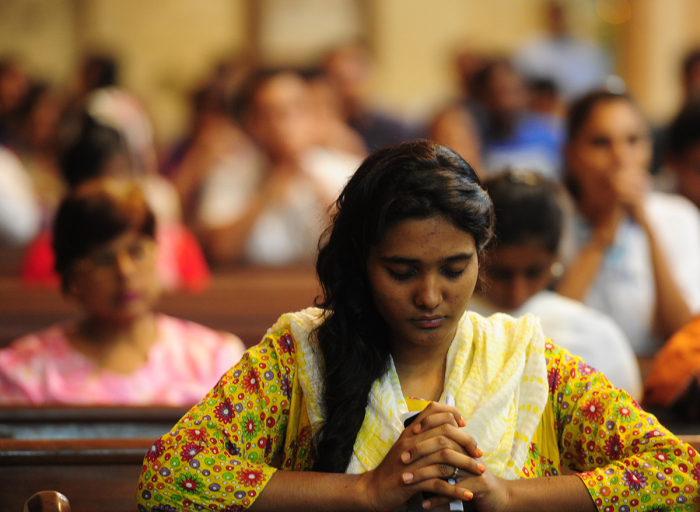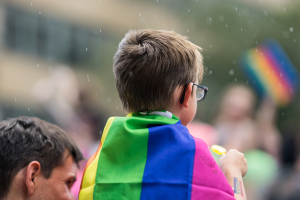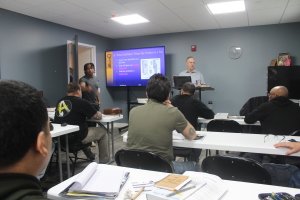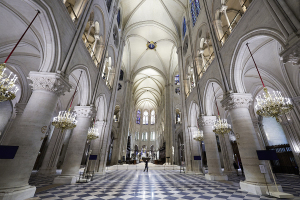Young Christian girl kidnapped, forced into sham marriage, conversion to Islam
'May God have mercy on us and save our child'

LAHORE, Pakistan — Another Christian girl in Pakistan, this one 14 years old, has fallen victim to forced conversion and marriage by a Muslim kidnapper, sources said.
Khalid Masih, a 48-year-old Catholic sanitation worker in Islamabad, said that a butcher in his neighborhood, Haider Ali, took his daughter, Alina Khalid, from their home in the Khanna Pul area of Islamabad on June 24.
“Some neighbors told us that they had seen an unidentified girl outside our house on the day Alina went missing,” Masih told Christian Daily International-Morning Star News. “When we began searching for her, I came to know that Haider Ali, a 27-year-old butcher in our neighborhood, had planned Alina’s abduction.”
He filed a complaint with Khanna Police that day, but they took no action, he said.
“The FIR [First Information Report] was finally registered late on June 25, giving the accused sufficient time to go into hiding,” Masih said.
The Masih family learned on June 27 that their daughter had been forcibly converted to Islam and married to Ali, he said.
“We came to know about Alina’s conversion and marriage after she recorded her statement in court in which she purportedly claimed that she had changed her faith and married Ali by choice,” said Masih.
The Nikah Nama (Islamic marriage certificate) states that Alina’s age was 19, but it lacks her required national identity card number, he said.
Typically, kidnapped girls in Pakistan, some as young as 10, are abducted, forced to convert to Islam and raped under cover of such Islamic “marriages” and are then pressured to record false statements in favor of the kidnappers, rights advocates say. Judges routinely ignore documentary evidence related to the children’s ages, handing them back to kidnappers as their “legal” wives.
Masih said his daughter could not have gone with Ali willingly.
“Alina did not have a phone and never went out of the house alone, so I don’t think she had any direct contact with Ali,” he said. “He has abducted her with the sole objective of exploiting her sexually. Like all other victims, Alina, too, was forced to do what her abductor said.”
Police have failed to recover Alina and present the suspect in court, he added.
Masih faces a daunting challenge in his struggle to recover her.
“My wife is suffering from Hepatitis C and is also a diabetic,” he said. “Her health has started to deteriorate due to the trauma of Alina’s abduction. The pain of losing our child and the thoughts of her suffering in captivity keep both of us awake all night. May God have mercy on us and save our child!”
Safdar Chaudhry, chairman of the Islamabad-based Raah-e-Nijaat Ministry, said that police were slow to act.
“The FIR was registered on our intervention after nearly 26 hours of the incident,” Chaudhry said. “Had the police acted on time, the accused could have been arrested, but inaction allowed him to disappear.”
The social activist called for legislative reforms to stop the exploitation of underage minority girls.
“The police must also realize its responsibility and should stop aiding the perpetrators. The same goes for Pakistani courts which are granting legal cover to such sham marriages,” he said.
New bill
In a bid to criminalize underage marriages in Punjab province, the Punjab provincial government on April 25 submitted the Punjab Child Marriage Restraint Act, 2024 in the Punjab Provincial Assembly, which would raise the legal age for marriage for both males and females to 18 years. Previously, the legal age for marriage for girls in Punjab was 16.
Under the proposed bill, anyone who marries a girl or boy younger than 18 or arranges such a marriage — including parents or guardians — would face two- to-three years in prison and a fine of between 100,000 Pakistani rupees (US$360) and 200,000 rupees (US$720).
At the time of marriage registration, the marriage solemnizer, secretary of the union council and marriage registrar would check the Computerized National Identity Card (CNIC) of the girl or boy, passport, educational certificate or other documents proving both are at least 18 years old. Attested copies of these documents would be required to be attached with the application of marriage certificate.
Rights activists say that, though raising the legal marriage age to 18 years for both boys and girls will help in preventing child marriages, certain amendments are required to ensure that minority girls also get due coverage of the law. Such amendments would override all “special” laws and maxims related to determining a girl’s age of maturity, they say, including Sharia (Islamic law) that allows girls attaining puberty to be considered adults.
A Christian lawmaker recently appointed as the chairman of the Standing Committee on Minorities Affairs and Human Rights lauded the government-moved bill but said it did not contain any provision related to minority girls who “change their faith” for marriage.
“We are working on an amendment to address this issue, and we hope that all parties in the Punjab Assembly will endorse our stance,” said Ejaz Alam Augustine. “Our objective is to ensure that minority girls are protected in the same way as Muslim girls.”
Augustine, a former minister for Minorities Affairs and Human Rights in Punjab during the 2018-2022 government of Prime Minister Imran Khan, said he had submitted a bill seeking to prevent forced conversion and forced marriages of minority girls in 2021, but that it was not taken up for discussion under pressure from hardline Muslims.
“There’s some hope now, and I think it is the best time to make a legislation that protects the girl-child irrespective of her faith affiliation,” he told Christian Daily International-Morning Star News.
Pakistan ranked seventh on Open Doors’ 2024 World Watch List of the most difficult places to be a Christian, as it was the previous year.
Originally published at Christian Daily International–Morning Star News





























